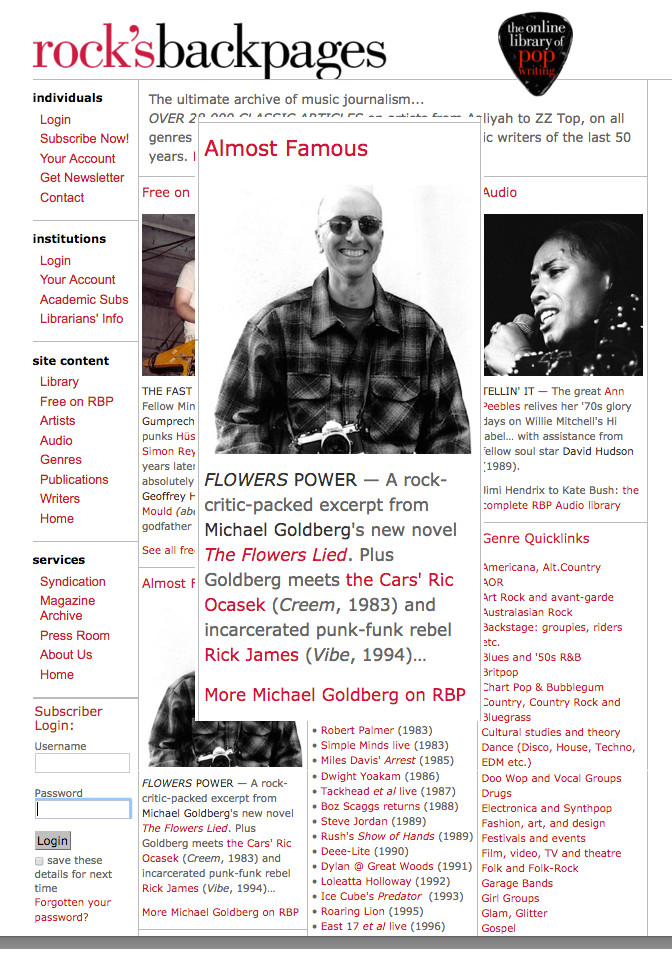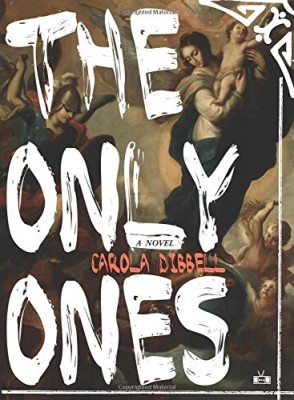
Those awesome editors at Rock’s Back Pages have featured me and an excerpt from my new rock novel, The Flowers Lied, on the home page of their site.
In the excerpt. which is the third chapter of the book. the narrator, Michael Stein AKA Writerman, meets two of his rock critic heroes for the first time when he visits them at The Pad, the rather decrepit apartment where both critics live and work.
The introduction to the excerpt begins:
Michael Goldberg’s rock ‘n’ roll coming-of-age novel, The Flowers Lied, has just been published. Richard Meltzer wrote that Goldberg’s first novel, True Love Scars, was “Radioactive as Godzilla.” Goldberg has been called a “21st Century Kerouac” by Kerouac biographer Dennis McNally and compared to Lester Bangs by Rolling Stone. The new novel focuses on Writerman (Michael Stein) a sophomore at The University, which is located in Northern California on hill above a beach town not unlike Santa Cruz. He’s a music freak and wannabe writer – he struggles with a Captain Beefheart album review, and tries and fails to type a single word of the Great American Novel he is so desperate to write. He pursues a hip but traumatized 18-year-old artist named Elise, who introduces him to tequila and Almaden Red. And he becomes best friends with Jim AKA Thee Freakster Bro, the over-the-top, gregarious writer/poet/music obsessive stoner he first meets in True Love Scars.
Read the entire excerpt at Rock’s Back Pages. Enjoy!
– A Days of the Crazy-Wild blog post –

